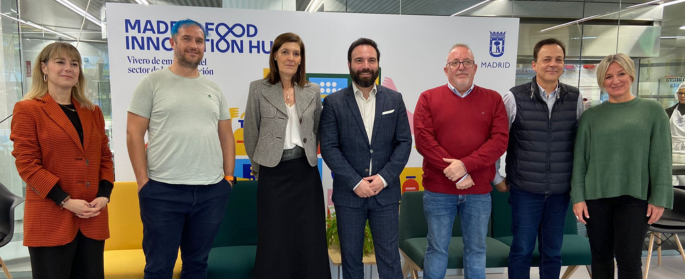- From hydroponic crops to aquaponics: the five innovative initiatives of the 'Madrid From the Roots' challenge to bring food production closer to the city
- The proposals have been chosen for their ability to transform food production in Madrid, offering avant-garde solutions that promote health, sustainability and environmental responsibility.
Madrid Food Innovation Hub, the Madrid Emprende food sector business incubator, has once again promoted citizen collaboration to seek innovative solutions in response to one of the great challenges of cities: how to bring the agri-food value chain closer to urban environments, promoting a more local and sustainable production.
“Madrid From the Roots”
This initiative has collected different proposals from Madrid citizens, most of them focused on promoting the local production of healthy foods through the use of innovative technologies that preserve their freshness, flavor and, at the same time, reduce the environmental impact. The chosen proposals present many synergies between them and place the Villaverde district as the epicenter of innovation and generation of future employment to lead the transformation of current production models.
During the presentation day, which took place at the Madrid Food Innovation Hub, the Councilor for Innovation and Entrepreneurship of the Madrid City Council, Ángel Niño, has congratulated citizens for their innovative proposals. «This initiative allows neighbors to be part of the process through which large cities like Madrid continue to advance at a technological and transformative level, and more so in a field of crucial importance such as food production, logistics and consumption.", has declared.
The authors of the selected proposals have had the opportunity to present their idea to the authorities and join an entrepreneurship and innovation workshop, actively collaborating with the center's experts. In this joint process, we have worked closely to refine the proposals and ensure their short-term viability.
Of all the proposals received, five have been selected that stand out for their innovative and sustainable approach to addressing food challenges in urban environments:
Centers of co-farming in urban buildings
This proposal promotes the training of professionals and the cultivation of a wide variety of vegetables in controlled environments, using hydroponics and vertical farming. Ranging from lettuce and tomatoes to aromatic plants and sprouts, this solution promotes sustainable and healthy eating by reducing the use of chemical pesticides and significantly reducing water consumption compared to traditional agriculture.
Vertical farming urban with mobile NFT modules
The second proposal highlights the value of vertical farming urban through NFT modules that would be moved from a central warehouse to nearby public spaces, schools or residences during the harvest phase. This initiative facilitates access to fresh, healthy food in specific communities.
Co-orchard as a collective production model
This idea proposes a collective production model based on a monthly subscription system. This model allows access to local crops and sales within the community, promoting local connection and sustainable consumption.
Aquaponics for circular production 100%
A revolutionary proposal that combines aquaculture and hydroponics, giving rise to what is known as aquaponics. Inspired by a successful project in Venezuela, this model uses rainfall water to create a circuit that feeds fish while providing organic nutrients for plants. This process does not use chemical products, guaranteeing food safety and considerable water savings.
Transformation of districts into hydroponic production centers
This proposal suggests converting several urban districts into production centers by allocating premises to install hydroponic cultivation modules. This solution not only reduces the environmental footprint, but also boosts local commerce and proximity between producers and consumers.




